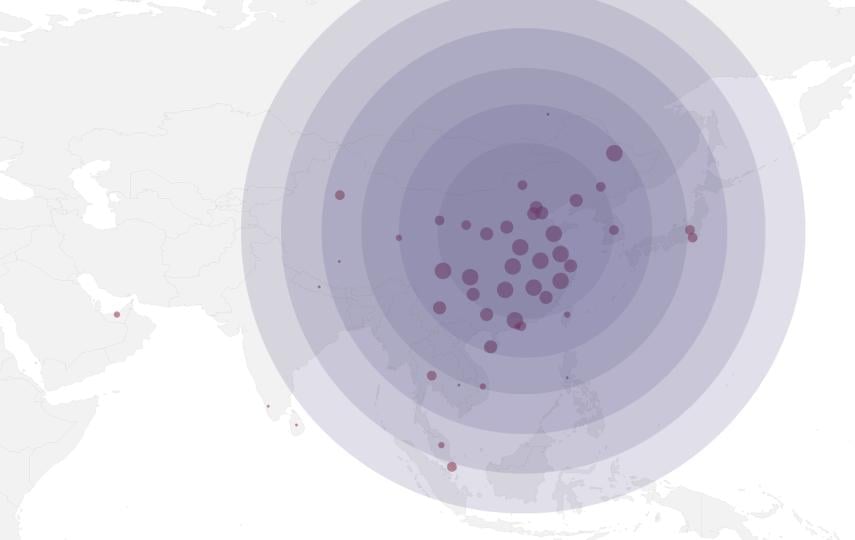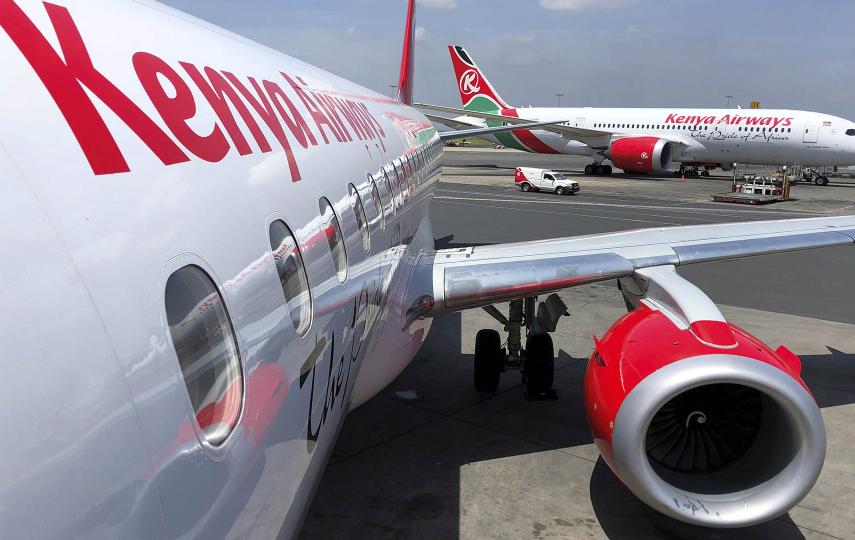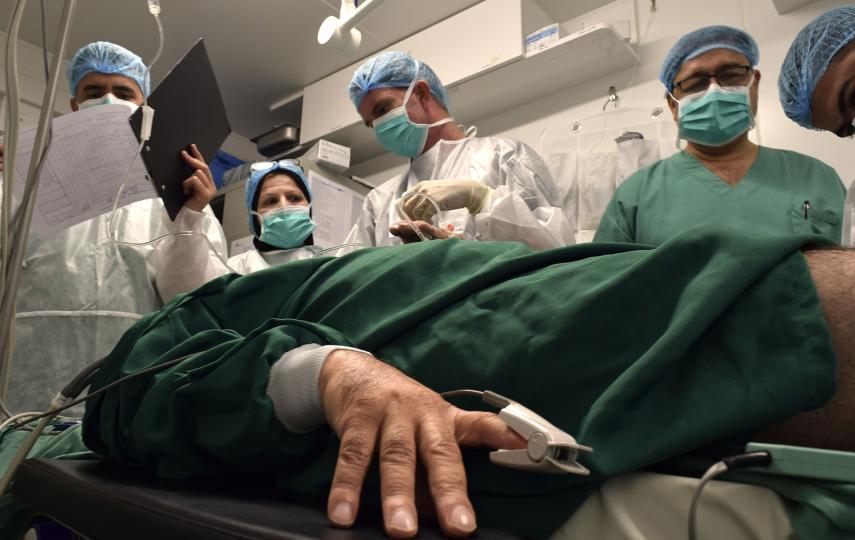Volunteer efforts to deliver badly needed medical supplies to hospitals at the epicentre of China’s coronavirus outbreak are being slowed by government red tape and city-wide lockdowns, organisers say.
The country’s hospitals are struggling to treat an outbreak that has now infected at least 60,000 people – roughly 15,000 new cases were announced on Thursday – and spread to two dozen countries.
Roughly three quarters of confirmed infections are found in Wuhan, where coronavirus cases were first reported in December. In January, more than 20 Wuhan hospitals posted open letters calling for supplies on social media – an unusual step that bypassed government-designated charity channels.
There is an urgent need for supplies like masks, protective suits, and safety goggles, Chinese authorities said on 4 February. One NGO, US-based Project Hope, said hospitals in Wuhan alone are going through more than 110,000 face masks every day.
Local media have also reported examples of frontline staff working without proper supplies, including medical staff in one hospital resorting to wearing raincoats instead of protective suits.
Volunteers on the ground in Hubei say they’re struggling to source supplies from local factories and deliver them directly to hospitals amid restrictive quarantines and global shortages. Wuhan has been on lockdown since 23 January, and more than a dozen cities elsewhere in Hubei have followed suit.
Skyrocketing global demand for protective medical supplies is adding to shortages for frontline health workers in Hubei.
The WHO says demand for critical supplies like masks, googles, and suits is 100 times higher than normal; manufacturers are projecting backlogs of up to six months. Widespread “inappropriate use” of these supplies for purposes other than treating patients is worsening the problem.
Chinese authorities this week called on local medical supply manufacturers to increase production.
Agencies like UNICEF have announced shipments of protective gear via China’s official aid channels. Medical charity Direct Relief said it has dipped into its emergency stockpile to send supplies.
US-based Project Hope said it has delivered more than 16 tonnes of gear, including two million face masks.
One volunteer told The New Humanitarian that the government has ordered emergency requisitions of medical supplies in local factories, limiting what’s available for unofficial relief efforts like hers.
“We absolutely must source from personal contacts that we trust in these factories or else it is difficult to trust the quality of their supplies,” said the volunteer, who asked that her name not be used because her group was not authorised to source supplies that factories have earmarked for official aid channels.
Due to road restrictions posed by the lockdowns in Hubei, her group transports donated medical supplies to Wuhan in bulk and asks hospitals to pick up the donations.
“For hospitals that are too far away or do not have transportation capacities, we had no choice but to give up their donations,” she said.
Wu Xuelan, part of a group of Chinese students at Princeton University in the United States that is mobilising donations, said smaller Wuhan hospitals have contacted her group for help via social media.
“We try to help as much as we can, and distribute the supplies according to need,” she said.
Wu said her group has managed to bring in thousands of masks, goggles, and a small number of protective suits, which are shipped in bulk via a Chinese logistics company. The group channels shipments through a recognised charity, but arranges for hospital officials to receive the donations immediately, bypassing the charity’s distribution network.
Chinese authorities have ordered customs regulations to be relaxed, but Wu said there are still layers of forms that must be filled in and stamped to comply with rules imposed by customs, shipping companies, and the state-designated charities that receive and redistribute supplies.
“For some charity organisations, there would be a new version of forms every day or even changes made within the same day, and we would have to refill everything again,” Wu said. “Our volunteers felt overwhelmed and frustrated.”
Public outrage and mistrust spur citizen aid
The volunteer aid efforts sidestepping officially designated relief channels reflect mounting frustrations in China about how the response is being handled on the outbreak’s front lines.
The Wuhan chapter of the Red Cross Society in China has drawn public outrage for mishandling face mask donations – reportedly sending thousands of masks to a private hospital that specialised in cosmetic surgery, while not sending enough to a hospital treating coronavirus patients.
State media have also published open criticism. The government has designated only five charities, including the Red Cross, to handle donations – a policy that has excluded smaller groups and ad hoc volunteer efforts.
“We were warned from day one by doctors from China to not donate money or supplies to Wuhan’s Red Cross.”
“The mammoth workload also made it impossible for the five organisations to allocate supply in accordance with donors' wishes,” Deng Guosheng, deputy director of the Institute for Philanthropy of Tsinghua University in Beijing, told the state-run China Daily.
There’s also lingering mistrust of the Red Cross in China over previous corruption scandals, including questions about how funding for 2008’s Sichuan earthquake response was used.
“We were warned from day one by doctors from China to not donate money or supplies to Wuhan’s Red Cross,” said Kirsten Chen, a PhD student at the University of California, San Francisco and coordinator of her school’s donation efforts.
News of the Wuhan Red Cross’s blunder discouraged some people from participating: “We had to assure people that we were reaching out to the hospitals directly,” she said.
Under public pressure, the Wuhan Red Cross chapter announced that donors may bypass it to give aid supplies directly to their preferred hospitals, according to local media. The other government-designated charities in Wuhan have not commented.
People on lockdown search for reliable information
As the outbreak continues, the lockdowns that started in Wuhan have spread elsewhere in Hubei and other parts of China.
Residents of Yichang and Suizhou, cities west and north of Wuhan, say movement has been completely restricted since last week. Only residents with special permits issued by the local government are allowed to leave their homes. Each family can send one person to buy groceries every other day.
“The gates downstairs are all locked,” said May Mei, a Yichang native who works in Beijing but came home for the Lunar New Year holidays in January, before the lockdown took hold.
Some roads and intersections have been blocked off by debris or manned checkpoints, residents said. Only hospital vehicles carrying the sick and government vehicles with permits are allowed to pass.
“The panic in Wuhan is extremely high right now, and there is a feeling of loneliness and helplessness.”
Other cities in the coastal province of Zhejiang, which has recorded more than 1,100 coronavirus cases, have adopted similarly stringent quarantines.
In Wuhan and elsewhere, neighbourhood committees – low-level government organisations that act as go-betweens for residents and the local government – track people’s mobility, oversee the rationing of face masks, and flag potential quarantine patients for signs of illness.
Supermarkets remain open, though shoppers have to wear a mask and undergo a temperature check, residents said.
Psychological stress is another big problem as the outbreak continues, said Li Wei, a 25-year-old Wuhan resident.
“The panic in Wuhan is extremely high right now, and there is a feeling of loneliness and helplessness,” Li said.
It’s made worse as online rumours circulate unchecked among residents holed up in their homes: in recent days, there have been false rumours that supermarkets would close, or that the army would move in to Wuhan.
“I do not know where to turn for information anymore,” she said.
tz/il/ag
Behind the headlines: How will COVID-19 impact crisis zones? | Thursday 19 March
Aid agencies are scrambling to adapt as the COVID-19 pandemic is felt throughout the world. Join Senior Editor Ben Parker as he speaks to leading experts and practitioners from across the humanitarian sector to discuss some of the most pressing issues.





